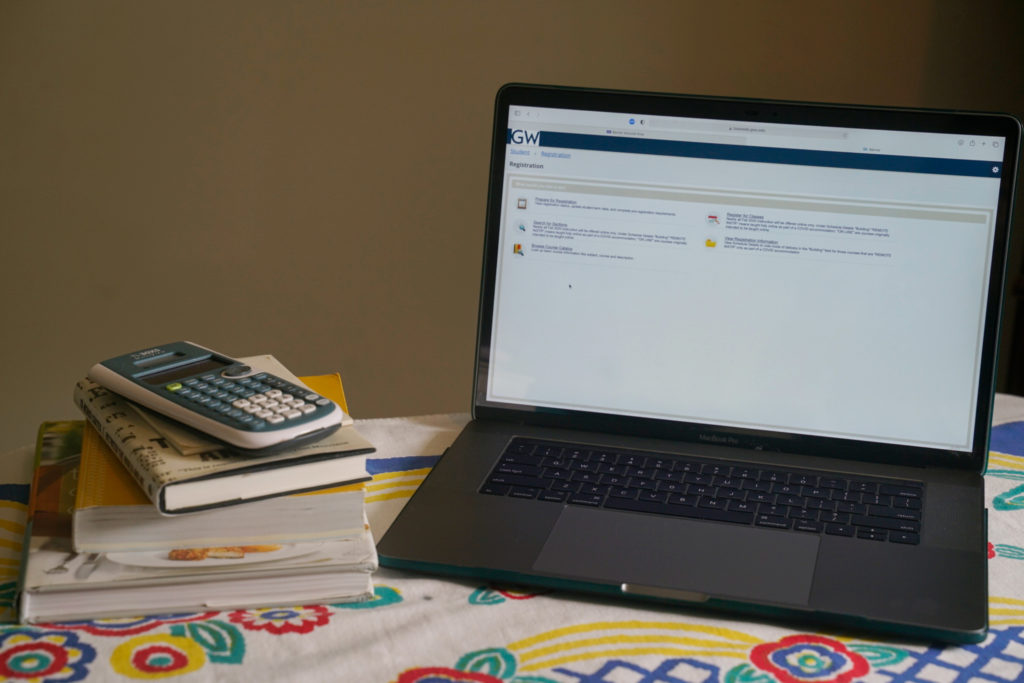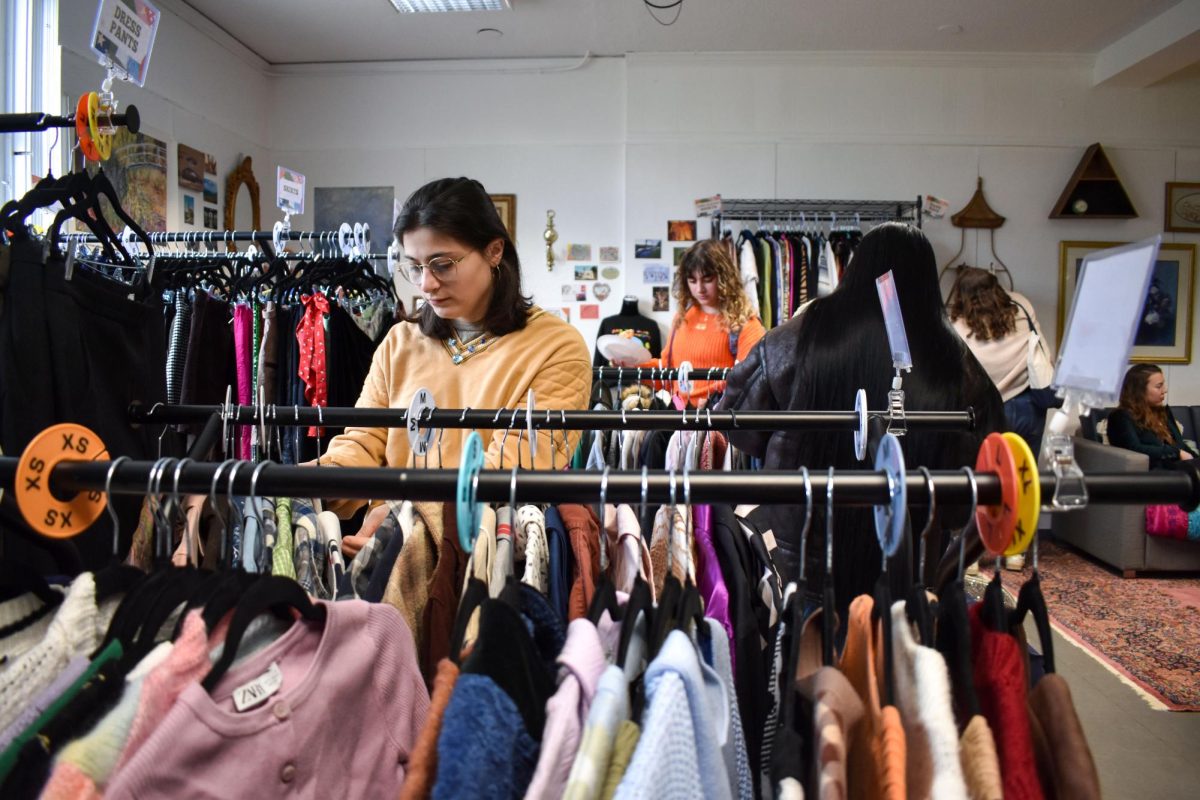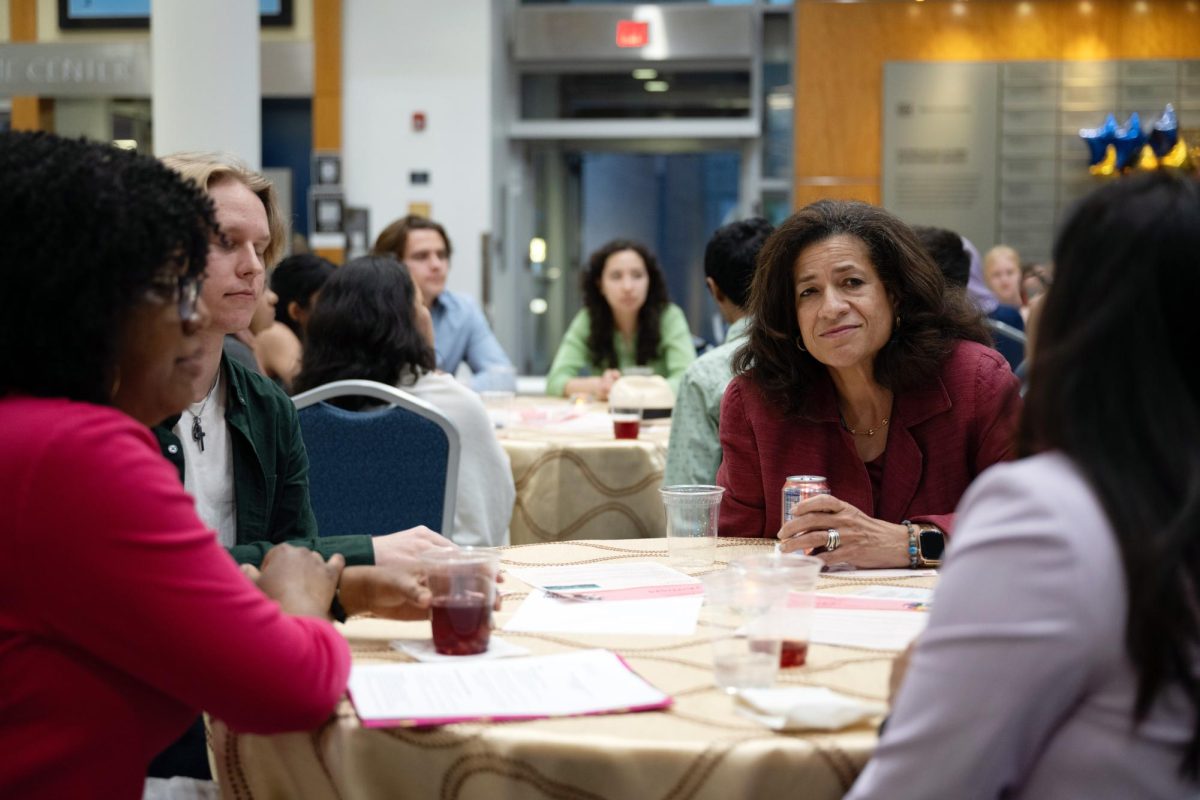With extra time on their hands, students said they are taking advantage of their relatively open schedules by enrolling in more courses, conducting research and working full time.
While some students have felt low morale and productivity as online instruction continues, others said the virtual learning has allowed them to be more flexible with their time because they do not have to commute to classes or schedule their courses around a job. In interviews, seven students said they have felt themselves perform more efficiently in classes and are focusing on professional opportunities like full-time internships and course loads.
Senior Tess Peterson, a political communication major living in D.C., said she accepted a part-time nannying job last semester while taking five courses. She said she cut down on time because she doesn’t have to commute to Foggy Bottom for classes.
“A lot of seniors in their second semester try to get full-time positions just to fill up the time,” Peterson said. “I’m not somebody that does well with idle time. I really needed something to do and the family that I’m working for now was really ready and willing to accommodate whatever class obligations I had, and so we just worked out a schedule that works for everybody.”
Peterson said she would not have been able to accept a full-time position if she were taking in-person classes this semester, and she is grateful for the flexibility of an online schedule. She said taking care of a seven-month-old has helped her mental health because her job does not require her to focus on daily news coverage as she would in an internship.
She added that nannying has been “great” because she gets paid full time, which is not guaranteed at an entry-level job or internship.
“There’s a lot of unpaid internship culture within GW, and obviously what I’m doing now is not an unpaid internship,” Peterson said. “But I think the idea of having a more real job was more appealing to me with all this time that I had, and especially one that was so caring and thoughtful.”
Junior Mark Thomas-Patterson, a history major living off campus, said he took five courses last semester in addition to beginning an independent study on foreign relations, which he had more time to dedicate to researching. He said the extra free time during the pandemic allowed him to take on the independent study.
He said he is taking four courses this semester and is continuing his independent study so he can spend more time preparing to apply to graduate school. He said the “biggest” challenge this semester has been not being able to interview people in person and find physical copies of archived sources in Gelman Library for his research.
“There’s a big issue of finding sources, so I have to do research projects that I can do with available online primary sources,” Thomas-Patterson said. “I am a lot better off than a lot of other people. I still have challenges, but they’ve been relatively small and I’ve done some really interesting research.”
Sophomore Michael Martineau, an international affairs major living in Allentown, Pennsylvania, said his grades have improved while attending classes virtually because he had more time to focus on his studies and enjoy learning the material. He said he began to research graduate programs in his spare time, which he said surprised him after a “rough” first year academically at GW.
He said he decided to challenge himself and take a full course load last semester because of virtual instruction, which he otherwise would not have during normal times. He said it was only after offhandedly taking an elective on the philosophy of human rights because of online learning that he found what he wanted to concentrate in.
“It’s not without its challenges, but last time I took a full 18 credits,” Martineau said. “I don’t have to worry about walking to classes or walking to [GW] Deli to feed myself as I eat here at home or when I take classes. So I definitely had a lot more time to focus on studies.”
Martineau added that he has begun to take more challenging courses in his concentration to stand out among his peers when he applies for graduate programs, which he has more time to plan and look into.
“I wasn’t too interested,” Martineau said. “And then since the pandemic, I was getting a lot better grades and into some good material in my classes. And I feel like I’ve missed out on some college experiences, and part of the decision was, I want to gain some of that back during grad school.”
Junior Emma Sauder, an international affairs and history major living off campus, said she originally planned to take her required international economics course over the summer at a local city college. Instead, she decided to take the economics course and two writing-intensive courses this semester because she had more time during the day to work on assignments, she said.
“I like that lectures are recorded, just because it makes it a lot easier for me to go back and watch it at my own pace,” Sauder said. “If there’s material I don’t understand, along with having the options to go to office hours or the TA, I also can rewatch what’s originally taught, which makes it a lot more simplified and easier to understand.”







